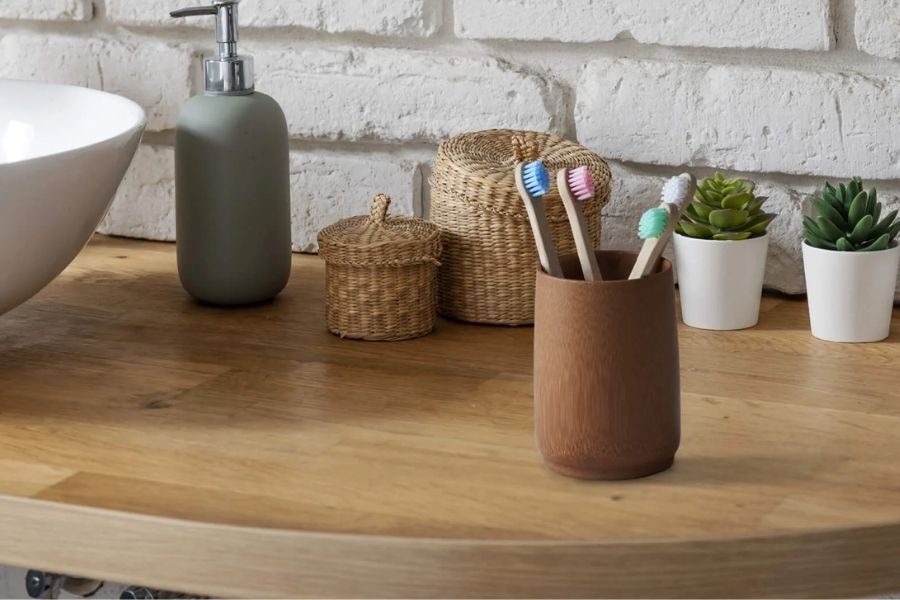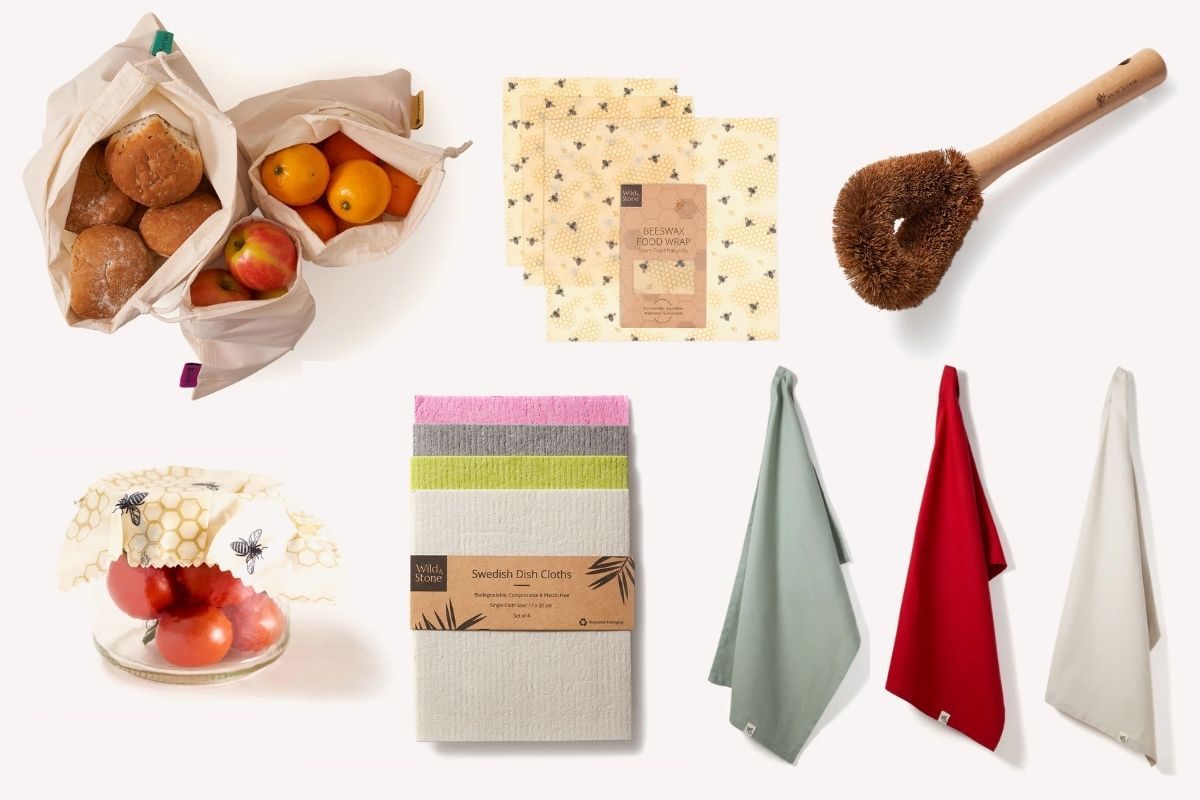Your Cart is Empty
INFO

How to Make Your Beauty Routine More Sustainable
December 08, 2022 4 min read
The beauty industry relies on waste. It produces an estimated 120 billion units of packaging every year — the majority of which is non-recyclable — which makes up around 70% of their total waste. Even when there are recyclable components, these are often mixed with non-recyclable materials, making them difficult to separate and sort. This waste contributes to plastic pollution, which causes serious harm to marine, animal, and human life. Without immediate action, Glamour reports that the amount of plastic entering our oceans is predicted to nearly triple by 2040, to 29 million metric tons per year.
Packaging aside, the product inside is often not sustainable either. There are more than 12,000 chemicals that are approved for use in the cosmetics and personal care sector, which includes suspected carcinogens like formaldehyde, as well as harmful parabens and phthalates. As Eco BnB highlights, lots of conventional skincare products also contain unsustainable ingredients like palm oil, plastic microbeads, and synthetic fragrances.
While established brands are making steps towards products that are more sustainable, there are practices and products to help you master your sustainable beauty routine right now. Let's get started.
1. Ditch Single-Use Products
As their name suggests, single-use products are designed to be used once and then thrown out — think sheet masks, face wipes, cotton pads, wax strips, mascara tubes, and cotton buds. Although convenient, these products often end up in landfill and are bad for the environment.
Instead, source sustainable alternatives for your favourite single-use products. Think bamboo cotton buds and reusable makeup remover pads over single-use swabs and wipes, or soap and shampoo bars over plastic bottles. These are designed to last, and are often kinder to your skin than their disposable counterparts.

2. Bamboo Tools
Your hair, body, nail and makeup brushes and applicators can be replaced with a more sustainable option. Look for plastic-free tools made from bamboo, that use synthetic hair instead of animal.
Why? Bamboo is a renewable material that is compostable and biodegradable, and synthetic hair — in particular if it's made with natural sisal fibre — is cruelty-free and sustainable.
Adding a dry brush to your skincare routine boasts its own range of benefits. You can encourage the renewal of skin cells, stimulate your circulation, unclog pores, and even skin tone to create softer, younger-looking skin.
3. Natural Deodorant
Regular deodorants contain high amounts of harmful aluminium, produce 15 million pounds of plastic waste per year, and contribute the same amount of air pollution as motor vehicles— all of which are terrible for the environment.
The good news is that brands likeWild are “re-defining deodorant” and offering natural, refillable deodorants that are powered by plants, and completely plastic-free and compostable. Although it might feel uncomfortable to move away from antiperspirants, Wild promises to absorb moisture and tackle odours associated with sweat as well, if not better, than their predecessors. Indeed, some of their customers have found that after switching from antiperspirant to deodorant,they sweat less in general. It’s a win-win.
4. Reusable Razor
The majority of razors on the market are single-use and non-biodegradable, and end up in landfills soon after purchase. While the blades will rust and disintegrate over time, the plastic handle, container and packaging will last for much longer.
The solution is to ditch single-use razors altogether, and switch to areusable safety razor instead. The plastic-free handle is designed to last, with just themetal blades needing to be replaced. After use, both are recyclable, and do little to no harm to the environment.

5. Reuse & Recycle
For the products that are in your drawers, or that can’t be switched to a more sustainable alternative, make sure you’re doing everything in your power to reuse or recycle them.
- Upcycle jars and containers and use them for refills, or to hold other products.
- Search for recycling programmes by brand and product type.
- Donate unused (or barely used) products to charities, or give them to family and friends. If you want to recoup costs, Facebook Marketplace and eBay allow you to sell new and partially used products.
6. Reduce Consumption
In the era of excessive consumption, it’s easy to get carried away with the latest trends and end up a mountain of untouched products. We’d recommend that you take a step back and evaluate what you need, and then limit your selection to a few ethical essentials.
Once you’ve cut back on your consumption, and therefore on your waste, be mindful of your usage. Instead of a huge glob of your serum or moisturiser, can you achieve the same amount of coverage with a smaller amount of product? This will make it last longer and reduce the rate at which you need to buy new products, saving you money and hassle in the long-term.
Don't forget refills, either! Packaging-free versions of your favourite products, delivered or collected at your convenience. You can upcycle unused jars and containers to store serums, cleansers and moisturisers.

And there you have it! Six simple ways to master your sustainable beauty routine. Got more suggestions? Leave a comment and share your thoughts below.
—
Share your plastic-free swaps with us at hello@wildandstone.com or tag us on Instagram #wildandstone.
Also in Sustainable Living Blog

The 5 Benefits of Using a Bamboo Toothbrush
August 07, 2025 4 min read
Discover five benefits of using a bamboo toothbrush, from saving the planet and oral health to the fastest plant in the world.

The 5 Best Eco-Friendly Kitchen Products
July 30, 2025 4 min read
Discover the 5 best eco-friendly kitchen products to take care of yourself, your home & the environment.
Make your inbox a little more eco!
Sign up and save 10% on your first order of 2 items or more.
Keep an eye on your inbox for the latest eco trends, articles, deals and product releases.



